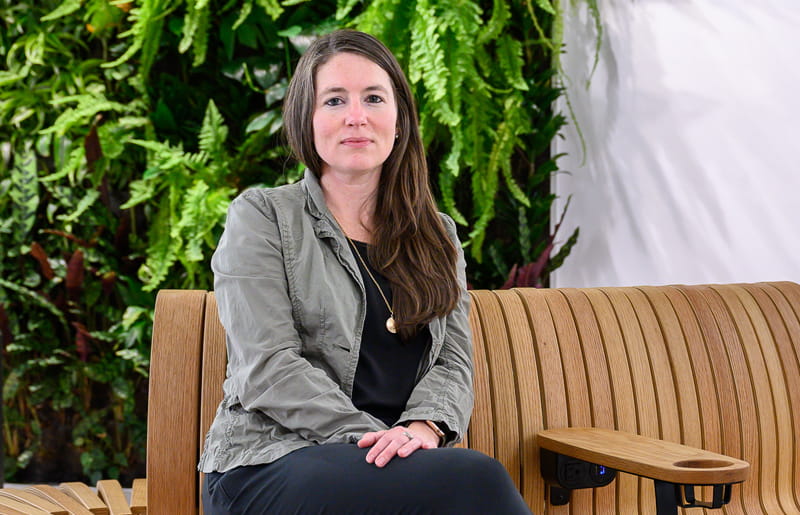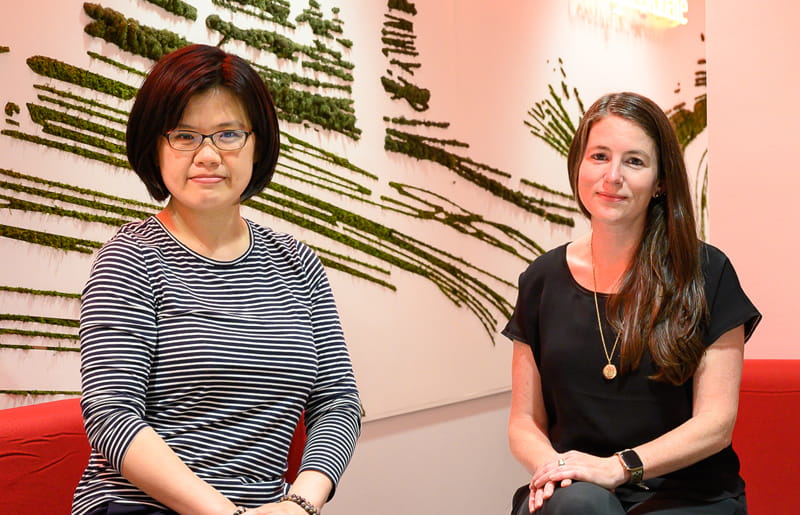Researchers study housing solutions for older Canadians
July 6, 2022
AT A GLANCE
- The number of older Canadians experiencing homelessness is increasing, and they are not well-served by traditional shelter/housing models.
- Aging in the Right Place is a research program that brings together the expertise of researchers, community organizations and people with lived experience to examine the issue.
- The researchers are evaluating “promising practices” to improve shelter and housing options for older people experiencing homelessness in Vancouver, Calgary and Montreal.
- They are hoping to inspire a “new generation of scholars” to continue the work.

“Canada’s older population is under-researched,” says Sarah Canham, project director of Aging in the Right Place and adjunct professor of gerontology at Simon Fraser University. “It’s one of the reasons I entered this field and the inspiration behind this particular program.”
The number of older people experiencing homelessness in Canada is increasing. Yet, traditional shelter or housing options for vulnerable populations are not well suited to older age groups. Especially those who may be managing chronic physical or mental health conditions.
Aging in The Right Place is a 6-year program. The goal is to evaluate practices that can be used to help older people live as long as possible in their homes and communities.
Not all older adults are the same. Some are entering later life with some very significant economic and housing financial challenges
The first year was spent in the field in Vancouver, Calgary and Montreal to identify “promising practices.” These are solutions that have not been rigorously evaluated but show potential for supporting older people experiencing homelessness. The researchers have now turned to evaluating those practices. Once this is done, they will determine the best way to share their findings and put them into action.
Direct contact breaks down stereotypes
The fieldwork brings researchers face-to-face with older people who have lived experience with homelessness. That direct contact, says Sarah, is a key piece of the process.
“Having access and the opportunity to be part of the data collection helps to break down and dismantle some of those societally ingrained ideas that we have about the older generation.”
The biggest misconception they need to tackle is that everyone is living out their “golden years” in a similar way. The idea that we all experience some version of a quiet retirement in the same home we have lived in for years, surrounded by a wide social network, is a falsity.
It can’t be true because older adults face different hurdles.
What is “the right place?”
“Not all older adults are the same,” says Sarah. “Some are entering later life with some very significant economic and housing financial challenges.”
“Aging well and aging in place will look drastically different than the stereotypical ideas of retiring after many years of stable work and stable housing.”
“The right place” is defined as somewhere that meets the person’s individual needs.

Lin Chen is the lead project coordinator. Lin has a master’s degree in social work and has focused her academic career on the social determinants of health of older people.
For her, this project is personal. And she’s always had one person in mind.
“It came from having been raised by my grandma.”
Being exposed to the daily life of an older person provided Lin with a deep connection to the concerns and needs of people in later life. And it showed the importance being part of a social network.
Choosing the most promising practices
Once the researchers have analyzed the gathered data – the “promising practices” – the result will be a list of “best” practices. This will enable the team to recommend which practices should be scaled up (that is, used more often) and scaled out (used in other communities).
Tamara Sussman, a professor of social work at McGill University and the city lead for Montréal, offers an example.
“We have to think about what's happening in communities where English is not the first language,” she says.

“I think that we're very far ahead on that in Montréal and probably have something to offer around the table in terms of how to improve access, how to think about different groups and how to reach out to them.”
She says that her team has been using a combination of a digital translation tools and the old-fashioned ‘buddy system’ to ensure everyone can follow what’s being said in English and French.
These approaches could easily be adapted for other languages in a particular setting.
The ability to put a human face to these experiences and to hear directly what their journey has been, is a really powerful thing
Christine Walsh, a professor of social work at the University of Calgary and city lead for the Calgary team, says that not only does every city differ, but every site differs as well.
Her team is looking at 2 locations:
- The James House, an apartment complex for people facing homelessness
- Kerby Centre seniors shelter
She said both of these promising practices offer programming that is rare across Canada.
“Every shelter is doing something kind of unique or offering services to a specific population in specific ways,” she says.
“Having 3 cities gives us the opportunity to just evaluate more, different and unique models.”
Improving the housing situation for future generations
The program’s network also includes a group of “lived expertise advisors” – older people who have experienced homelessness. Their role, says Sarah, is to guide the researchers along the way and to “keep us in check.”
Calgary-based Hilary Chapple is one of these advisors. Hilary was homeless for more than a year. She “couch-surfed” and bounced between temporary places, before eventually arriving at a shelter with 2 outfits and few other belongings.
As a queer woman, she knows first-hand that many housing options don’t accept LGBTQ2S+ older adults. Nor do they provide dignity and respect.
She says she chose to work with the program, “so that my own experience can make things better for others who come after me.”

Inspiring a new generation of researchers
One of the program’s stated objectives is to “train a new generation of scholars” to continue this work. Lin and Sarah hope that their work will personalize the topic for more young academics.
“The ability to put a human face to these experiences and to hear directly what their journey has been, is a really powerful thing,” says Lin.
“It helps new researchers grasp the importance of the work and see who it will benefit.”
KEY FACTS
- Aging in the Right Place is a research program within the Collaborative Housing Research Network, a joint initiative by CMHC and the Social Sciences and Humanities Research Council.
- The Collaborative Housing Research Network brings together academic and non-academic sectors in support of enhanced research under Canada’s National Housing Strategy.
- Approximately $7.9M has been committed by CMHC to the Network for its initial 5 years.
- Programs within the Network received Partnership Development Grants for the first stage of their research, and subsequently received Partnership Grants to carry it to completion.
SEE ALSO






 Share via Email
Share via Email
